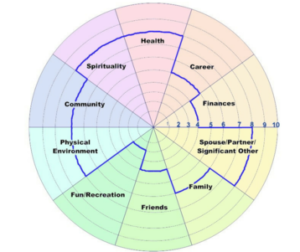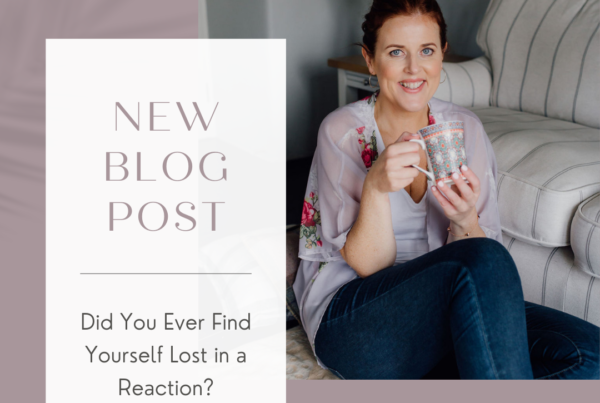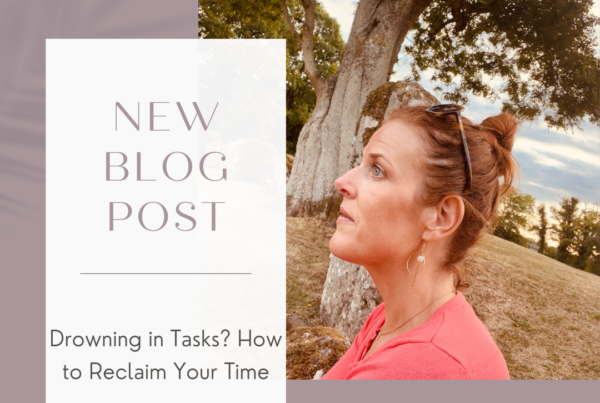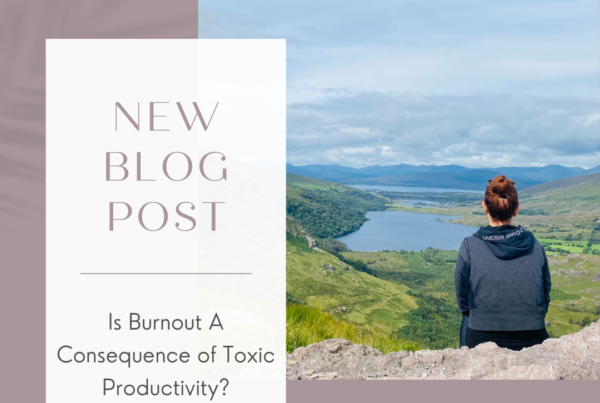 I have been struggling a lot lately with the concept of “Work-Life Balance”. Don’t get me wrong, I am all for creating balance in my life, in fact balance, is a value of mine. However, the term ‘Work-Life Balance’ has started to irk me, because I immediately feel like one area of my life is in direct competition with all the others.
I have been struggling a lot lately with the concept of “Work-Life Balance”. Don’t get me wrong, I am all for creating balance in my life, in fact balance, is a value of mine. However, the term ‘Work-Life Balance’ has started to irk me, because I immediately feel like one area of my life is in direct competition with all the others.
I haven’t always thought this way, in fact, as a Wellness Coach, I advocate for work-life balance, but recently I find myself coaching more and more people around this goal, which has led me to question is it a realistic? What does the term “life” represent and should we be competing our work against it, in order to feel balance?
In my coaching practice, I take a holistic approach with my clients, by examining all areas of their life, as they are all inter-connected. To do this, I use a standard coaching tool, called the ‘Wheel of Life’, which allows each client to audit the eight key areas of their life. It is a snapshot of how they are experiencing their life, today. The areas are health, career, love, spirituality, family, money, fun, friends.

If you look at the wheel, you will notice career is just one of the eight areas of our life. So what would a balanced wheel look like? If your career was to excel i.e. you rate it at a 10, would that balance the entire wheel? Nope!? In order for any of us to strike a balance in our lives, do we need to push beyond the flawed perception of a work-life balance, and remove the notion that our work is in direct competition with our life i.e. the seven other areas in the wheel of life?
“I immediately feel like one area of my life is in direct competition with all the others”
Full disclosure, I am the least competitive person you will ever meet, so when I feel that one area of my life is competing against all the others, I immediately feel out of balance. I experience overwhelm and procrastinate when I think of all that I need to do to achieve success, and I begin to self-sabotage. I start to sink into that hopeless feeling of not being good enough. This ultimately leads to demotivation and a sense of failure. This sense of failure pushes me to exceed, it is massively uncomfortable and has ultimately led me to burnout, not once but twice, by pushing myself to do more so I could have more so I could feel more, but more on that later.
Now I know what a lot of you are thinking, work is essential, it is a non-negotiable as it helps us to provide for the other areas of our life, but let’s look at some of those other areas. Health, now that is pretty essential too wouldn’t you agree? I feel that the last year, more than ever before, has proven that to us. What we once took for granted was taken from us with the constant threat of sickness and worst case scenario, death, looming over us. All of sudden we needed to prioritise our health in order to feel safe; it had become a non-negotiable, finally.
“In order for any of us to strike a balance in our lives, do we need to push beyond the flawed perception of a work-life balance, and remove the notion that our work is in direct competition with our life?”
What about our relationships and our family? Our relationships give us an opportunity to connect, they nourish us, they give us love, security, and safety. Again, I feel that during the pandemic we realised the importance of this, when for many of us it was taken away. People longed for a hug, they longed to meet with family and friends and to simply connect. The lack of human connection brought an awareness to the importance of it, again with many of us questioning this, has this now also become a non-negotiable in our lives? How about fun? Doing things we enjoy, things that relax us that give us a sense of freedom and adventure, things that get us out of our head, how important is that to you and what did you miss when you were locked up in your home?
Have you ever considered what your non-negotiables in life are? What would it feel like if you started to consider that your career is not separate to life and is as important as the other seven areas? How does that concept land with you? What changes would you need to make for that to become your reality?
I want to take you through my journey. It was January 2008, I decided that the relationship I was in, was not perfect (I have since realised, none are), and I decided that I needed to leave that relationship to focus on myself. That all sounds good and healthy, right? I thought it was too, but what ensued was 8 years of consistently pushing myself in the workplace, with the endless pursuit of wanting to feel worthy, to feel good enough, to be successful, only to end up burnt out, depleted and lost.
I have since learned that deep within me is a belief that ‘I am not good enough’, what I did not know at the time was that I was operating from this subconscious belief, causing me to behave in a certain way, in the constant pursuit of wanting to feel good enough. How did this show up in my world back then? Well, I threw myself into work because I felt such a failure in the other areas of my life. I said yes to so many things that I really wanted to say no to, I allowed people to treat me with disrespect; I lived in fear and had absolutely no balance in my life.
In the years since, I have discovered that we develop our beliefs at a very young age, actually in the first seven years of our life, through both experience and repetition. Therefore, if we experienced situations at a young age, that challenged the very core of who we are, and we experience that repeatedly, there is a high chance that we will develop a belief of not being good enough. In fact, this is one of the most common limiting beliefs I have come across in my 4 years of coaching.
‘what I did not know at the time was that I was operating from this subconscious belief, causing me to behave in a certain way’
American Biologist and author of ‘The Biology of Belief’, Bruce Lipton says that ‘95% of the day you are not operating from the creative conscious mind, you are operating from subconscious’. So what does this look like for those of us who believe we are not good enough? Well it can mean a lack of healthy boundaries, working long hours to feel validated; it can mean not having a voice in our relationships, having a fear of being vulnerable, which often prevents us from asking for help. It can mean losing our voice, our identity and assuming a pseudo identity, which quite often leads to burnout.
I was in a situation for many years where I lost my identity and began to prioritise money, power and career progression over my wellbeing, in order to feel worthy. I was not doing this consciously, I was acting from that belief that I am not good enough and I thought this was my only solution. I won’t lie to you, it felt good to earn lots of money, it felt good to feel important but why then did I feel so empty inside?
We can become so disconnected from our authentic selves that we feel lost, overwhelmed and mentally exhausted, in our constant pursuit of wanting to feel good enough. It is these subconscious beliefs that can cause us to prioritise our careers over the other areas of our life, quite often at the cost of our health, our happiness, our relationships and our overall wellbeing. Living a balanced life means determining what is most important to you and expending your time and energy accordingly. So do the audit and ask yourself this, what is important to you right now? Are you giving that area of your life your time and energy? If not, then why?
Quite often, what I will learn from my clients and through my own self-reflection is that people have lost focus of who they really are due to deep insecure thoughts. We are afraid of who we are because we believe who we are, is not good enough. This disconnection from self can cause poor decision-making and lifestyle choices. The answer lies in reconnecting with yourself by defining what balance means to you, auditing where you are spending your time and energy and what are the challenges you experience when trying to implement change.
This type of self-evaluation is often what causes a ‘mid-life crisis’ or as I like to call it the’ mid-life awakening’. It does not mean that you have to work less or change your career, unless that is what feels right for you, but it can mean shifting your mind-set a bit, so that you can enjoy work more and not feel so worn out. You can begin to question why are you returning to the laptop after dinner or why are you checking your emails at the weekend? What is driving those behaviours? Where could you be spending your time and energy instead?
“Living a balanced life means determining what is most important to you and expending your time and energy accordingly”
By becoming aware first, you can then define what balance means to you and create your list of non-negotiables i.e. what is it you need to have in your life in order to feel balanced and well. For those of you out there who love their career and feel energised and motivated by it, that is great, it could be that you are living on purpose and aligned with your values, but that still doesn’t always mean you have balance. Do the audit and check for yourself.
Once you have all the knowledge it will help you to introduce boundaries, you only have 24 hours in a day, for many of us, we spend 7-9 of those at work, so how do you want to spend the rest of your time? To learn more about yourself, take the free Wheel of Life Quiz and see for yourself what areas of your life may need your more time and energy, also use this free tool to Discover Your Values so you can become clear on what is important in your life.
For a free 1:1 coaching consultation, click here



